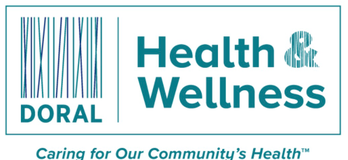Ulcerative Colitis

One of the most common causes of gastrointestinal issues is an inflammatory bowel disease called ulcerative colitis, which results in inflammation and ulcers (sores) in the digestive tract. The rectum and the colon’s inner lining are both affected by ulcerative colitis, which is a chronic inflammatory bowel disease. Symptoms frequently take longer to appear than they do to disappear.
Ulcerative Colitis can be debilitating and even life-threatening if it progresses unchecked. Even though there isn’t a cure for the disease right now, treatment can make the symptoms much better and cause the disease to go away for good.
Symptoms
The signs and symptoms of ulcerative colitis can vary widely, depending on the degree of inflammation and the location of the illness. The following are all possible signs and symptoms:
- abdominal pain and cramps
- rectal pain and rectal bleeding
- a small amount of blood in the stool
- a strong desire to defecate
- an inability to defecate despite the desire to do so; and weight loss are all possible signs and symptoms
- For adults, exhaustion, and fever
- For youngsters, a lack of growth
- Mild to moderate symptoms characterize the majority of ulcerative colitis sufferers. In certain cases, people with ulcerative colitis experience extended periods of remission.
Types
Ulcerative colitis is frequently divided into subtypes based on where it manifests.
- Ulcerative proctitis: As the inflammation is only in the area close to the anus, rectal bleeding may be the only sign of the condition.
- Proctosigmoiditis: The rectum and sigmoid colon (the lower end of the colon) are involved in inflammation. Bloody diarrhea, abdominal pain, and an inability to pass stool.
- Colitis on the left side: The rectum, sigmoid, and descending colon are all affected by inflammation. Diarrhea, stomach cramping, and pain on the left side are among the signs of bowel obstruction.
- Pancolitis: As a result, the entire colon is affected, and bloody diarrhea, abdominal cramps, and agony are common. Fatigue and considerable weight loss are also common symptoms.
How often should you visit the doctor?
Consistent changes in your bowel habits or symptoms such as abdominal pain, blood in your stool, persistent diarrhea that does not respond to over-the-counter medications, diarrhea that wakes you up at night, or an unexplained fever lasting more than a day or two should prompt you to consult your doctor.
Although ulcerative colitis isn’t usually fatal, it can lead to life-threatening complications.
Here are the services provided at Doral Health and Wellness
- Colonoscopy
- Colon Cancer Screening
- Celiac Disease Treatment
- Sigmoidoscopy
- Endoscopy
At Doral Health and Wellness, we have doctors that can help you manage your condition. For more information, you can visit us at 1797 Pitkin Avenue, Brooklyn, New York, 11212, or call us on 1-347-384-5690 or 1-347-868-1016. You can also visit our website at https://doralhw.org or contact us at info@doralhw.org if you have any queries.


